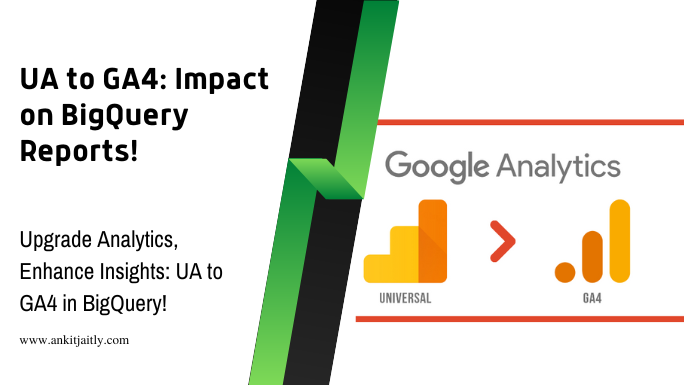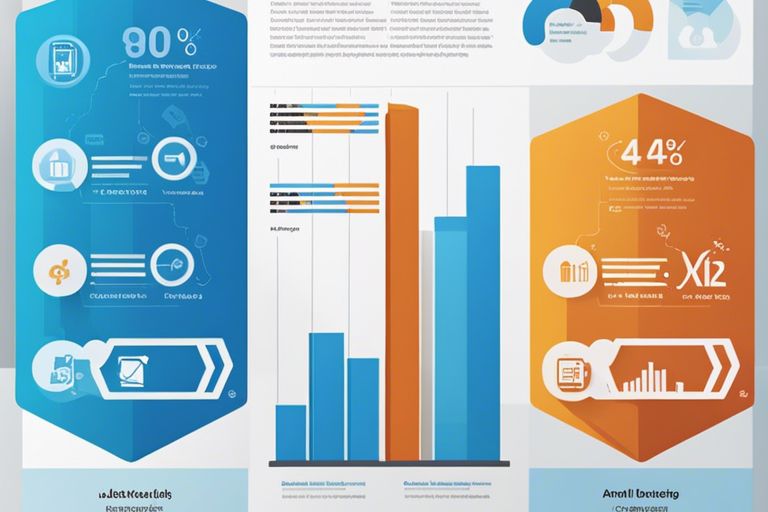Emigrating from Universal Analytics to Google Analytics 4 can have significant implications for your BigQuery reports. While the transition offers exciting new features and capabilities, it also brings about a number of potential challenges that can drastically impact the way you analyze and interpret your data. In this guide, we will explore the key differences between Universal Analytics and Google Analytics 4 and how these changes can positively or negatively affect your BigQuery reports. Understanding these differences is essential for any business or organization looking to make a smooth and successful migration to Google Analytics 4.
Types of Changes to Expect
To effectively migrate from Universal Analytics to Google Analytics 4, it is important to understand the types of changes that you can expect. These changes will impact your BigQuery reports and it is crucial to be prepared for them. The following are the main types of changes to expect:
Data Model Differences
Differences in the data model are one of the key changes to anticipate when migrating to Google Analytics 4. The structure of the data model in GA4 is different from Universal Analytics, requiring adjustments in how data is collected and processed.
Event Tracking Alterations
One major change to anticipate is the alterations in event tracking. In Google Analytics 4, event tracking is handled differently compared to Universal Analytics. This includes changes in event parameters and how events are triggered and recorded.
Event tracking in GA4 introduces new methods and practices that may differ significantly from what is familiar in Universal Analytics. Recognizing these alterations is crucial for adapting your tracking implementation.
Changes in Reporting Identity
Reporting identity is another area that will experience changes when transitioning to Google Analytics 4. This includes modifications in how user and session data is reported, requiring adjustments in how reports are interpreted and utilized.
The changes in reporting identity affect the way data is structured and presented, influencing the insights and analysis derived from Google Analytics 4. Understanding these changes is important for effectively utilizing the new reporting capabilities.
New Metrics and Dimensions
Another significant change to anticipate is the introduction of new metrics and dimensions in Google Analytics 4. These additions expand the range of data that can be collected and analyzed, providing new opportunities for gaining insights into user behavior and engagement.
Changes in metrics and dimensions impact the way data is measured and categorized, offering new possibilities for analysis and reporting. Recognizing these changes is important for leveraging the full potential of Google Analytics 4.
Step-by-Step Guide to Migrating BigQuery Reports
Despite the potential challenges, migrating BigQuery reports from Universal Analytics to Google Analytics 4 can be a smooth process when following a step-by-step guide. Below, we will break down the process into four key subsections to help you navigate the migration successfully.
Preparing for the Transition
One of the first steps in migrating your BigQuery reports is to prepare for the transition. This involves understanding the differences between Universal Analytics and GA4 data models, as well as identifying any custom dimensions or metrics that may need to be redefined in GA4.
Universal Analytics | Google Analytics 4
Pageviews | Screenviews
Sessions | Engaged sessions
Mapping Universal Analytics Data to GA4
Guide your CustomDimension and CustomMetric mapping from Universal Analytics to GA4 to ensure that your data is accurately translated. By mapping your data properly, you can avoid discrepancies in your reports and ensure a seamless transition.
StepbyStep guide to mapping CustomDimension and CustomMetric data from Universal Analytics to GA4.
Exporting Data to BigQuery
Guide your data export from GA4 to BigQuery properly by configuring the appropriate settings and ensuring that the exported data aligns with your reporting needs. With proper export settings, you can effectively leverage the data in BigQuery for your reporting and analysis.
Guide to configuring data export settings from GA4 to BigQuery.
Validating and Testing Reports
Validating your migrated reports is crucial to ensure the accuracy and integrity of the data. This involves testing different report scenarios and comparing the results between Universal Analytics and GA4 to identify any discrepancies and address them accordingly.
This step-by-step process will help you validate and test your reports effectively to ensure a seamless transition.
Factors to Consider During Migration
For a successful migration from Universal Analytics to Google Analytics 4, there are several factors that need to be carefully considered. Let’s take a look at some key considerations to keep in mind during the migration process.
Data Retention Policies
On migrating to Google Analytics 4, it is crucial to review and update your data retention policies to ensure compliance with the new platform. This includes understanding how data is stored and for how long, as well as making any necessary adjustments to your existing data retention settings.
// Sample code for updating data retention policies
gtag('set', 'data', {'data_retention_period': '14_months'});
Access Controls and Permissions
Permissions and access controls play a critical role in managing user access to Google Analytics 4 data. It is important to thoroughly review and update your access control settings to ensure that the right users have the appropriate level of access to the new platform.
// Sample code for updating access controls and permissions
ga('create', 'UA-XXXXX-Y', {'cookieDomain': 'none', 'siteSpeedSampleRate': 100});
The proper configuration of access controls and permissions will help prevent unauthorized access to sensitive Google Analytics 4 data, ensuring data security and compliance with privacy regulations.
Impact on Historical Data Analysis
Retention of historical data and its analysis is crucial for understanding long-term trends and performance. Migrating to Google Analytics 4 may impact historical data analysis due to changes in the way data is collected, stored, and reported.
// Sample code for analyzing historical data impact
gtag('event', 'conversion', {'send_to': 'G-XXXXXXXXXX'});
Retention policies and data schema changes can affect the availability and accuracy of historical data, so it is important to carefully assess the impact and make necessary adjustments to your data analysis strategies.
Tips for a Smooth Transition
Now, let’s dive into some tips to help ensure a smooth transition from Universal Analytics to Google Analytics 4. Follow these best practices to minimize any potential disruptions to your BigQuery reports.
Leveraging Dual Tagging
On the dual tagging approach, it’s recommended to have both Universal Analytics and Google Analytics 4 tags firing simultaneously to collect data in both platforms. This will allow for a period of data collection and validation to ensure that your BigQuery reports remain as accurate as possible during the transition.
// Universal Analytics Tag
ga('create', 'UA-XXXXX-Y', 'auto');
ga('send', 'pageview');
// Google Analytics 4 Tag
gtag('config', 'G-XXXXXX', {'send_page_view': true});
Training and Resources
Resources like Google’s official documentation and training materials can be incredibly helpful during the migration process. Familiarizing yourself and your team with the differences between the two platforms, as well as the new features and capabilities of Google Analytics 4, will be crucial for a successful transition.
Resources:
- Google Analytics Help Center
- Google Analytics Academy
Tagging your resources with relevant keywords such as Google Analytics 4, migration, and training will help ensure that you are finding the most current and relevant information for your specific needs.
Utilizing Google’s Setup Assistant
An important feature to take advantage of during the migration process is Google’s Setup Assistant, which provides guided assistance for setting up your properties in Google Analytics 4. This can help ensure that you are properly configuring your new Google Analytics 4 properties to align with your existing tracking setup.
// Google's Setup Assistant
Assume that the Setup Assistant will walk you through the process of creating a new Google Analytics 4 property and help you migrate your existing settings and configurations.
Utilizing the Setup Assistant will ensure that you are taking advantage of all the new features and capabilities of Google Analytics 4 while maintaining the integrity of your data and reports.
Will Migrating to Google Analytics 4 Enhance Reporting and Data Analysis in BigQuery?
Migrating to Google Analytics 4 can significantly enhance reporting and data analysis in BigQuery. The benefits of linking Google Analytics with BigQuery include improved data accuracy, deeper insights, and the ability to analyze raw, unsampled data. This integration allows for better understanding of user behavior and more robust marketing attribution.
Pros and Cons of Migrating to Google Analytics 4 for BigQuery Reporting
Keep in mind that migrating from Universal Analytics to Google Analytics 4 can have both advantages and drawbacks when it comes to your BigQuery reporting. It’s important to weigh the pros and cons carefully before making the move. Below, we’ll take a closer look at the potential benefits and challenges associated with this migration.
Advantages of the New Analytics Platform
Advantages of the New Analytics Platform
Analytics 4 introduces a more flexible event tracking model, allowing for greater customization and detail in the data collected. This can provide a more comprehensive view of user interactions and behaviors, leading to more accurate and actionable insights for your BigQuery reports. Additionally, the enhanced integration with BigQuery in Google Analytics 4 streamlines the process of exporting data, making it easier to analyze and derive value from your data.
Potential Challenges and Drawbacks
Potential Challenges and Drawbacks
Prospective challenges in migrating to Google Analytics 4 for BigQuery reporting include potential data discrepancies and the need for reconfiguring existing setups. Additionally, the transition may require adjusting to a new reporting interface and learning to work with the updated data schema. It’s important to consider these potential hurdles and allocate resources for the migration process accordingly.
Potential Challenges and Drawbacks
Cons: It’s crucial to highlight the potential data discrepancies and the learning curve associated with the new reporting interface. These challenges can impact the accuracy and efficiency of your BigQuery reports and should be carefully considered before migrating.
How Can Migrating from Universal Analytics to Google Analytics 4 Affect Your BigQuery Reports?
With this in mind, it is crucial for businesses to understand how migrating from Universal Analytics to Google Analytics 4 can impact their BigQuery reports. The introduction of Google Analytics 4 brings about significant changes to how data is collected, processed, and stored, which can have implications for the way that data is analyzed in BigQuery. It is important for organizations to thoroughly assess the potential impact on their reporting and data analysis processes before making the switch. By being aware of the potential implications, businesses can effectively adapt and continue to harness the power of data analytics for informed decision-making.

